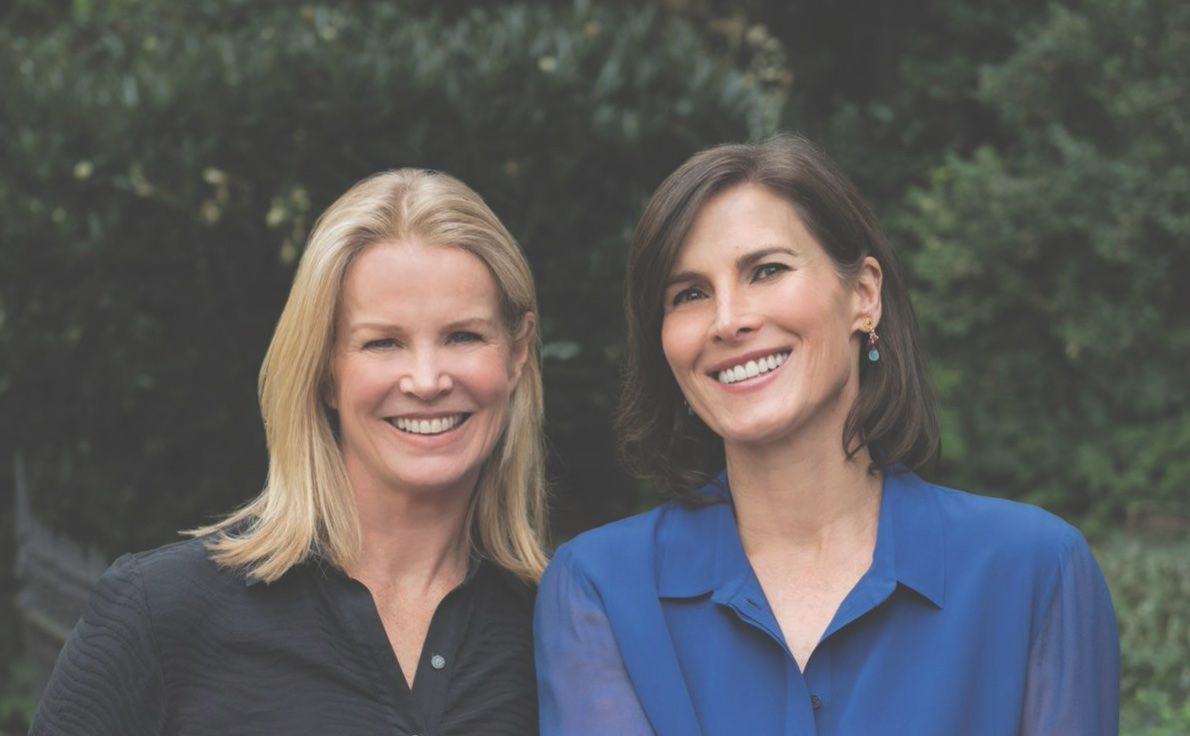Katty Kay and Claire Shipman, authors of the bestseller 'The Power Code,' Are on a Mission to Make the World of Work Better
When journalists and authors of The Confidence Code, Katty Kay and Claire Shipman traversed the globe to uncloak and illuminate the contrasting pillars of 'power,' what they didn't forecast was that they would unleash a new way forward for women—a framework that casts away centuries-old thinking and invites a paradigm shift that opens doors... for all.
Here the veteran journalists talk about their latest book, The Power Code: More Joy, Less Ego, Maximum Impact for Women (and Everyone), and our societal need to remake power so it works for women, men, and everyone.
A CONVERSATION WITH CLAIRE SHIPMAN AND KATTY KAY
In The Power Code, you discuss the power construct that's stood the test of time but to the detriment of women and men. You delve into the fascinating neurological findings and brain differences associated with the experience of power (as we climb the corporate ladder), including decreased empathy. Your research illustrated that over decades, there hasn't been much change when it comes to women advancing into the senior ranks and C-suite. What needs to happen at the systemic level to expedite this desired shift in the workplace and beyond?
Kay: I wish I could say that there was one silver bullet and that there was one thing we could all do, and suddenly, centuries of existing power structure would be disrupted. Clearly, that isn't the case because if it were, we would not have stalled at the top, which is really why Claire and I wrote this book. What helps is for people to think of themselves in this role as 'everyday disruptors.'
The neuroscientists that we spoke to said that there's a surprising impact that can take place just by noticing. So start by being aware that there has been this centuries-old view of power that's been handed down, understandably, because it was created by and for men. But we're realizing that's not the only way that power can be attained or used, and actually there may be ways that suit women better that create more impact for all of us. Some of it starts by just understanding what we have and opening ourselves up to the possibility that it doesn't have to be this way and that we can change it.
Shipman: It's recognizing, as an individual woman at all levels of leadership, that the way we want to manage, lead, and do our work, as well as use our instincts, it's all valid. It's this notion of fighting our instincts because it doesn't seem to fit within the current structure; the hierarchy is flawed. One of my favorite tips comes from this very high-profile woman who says, "When women get talked over, just say, 'let her finish.'" At first, I thought, 'I could never do that, it sounds so rude,' but she said, "No, you have to use this blunt language because it's what men understand." And that's what we need to look for all the time in myriad ways.
We did a lot of best practice research that focuses on what companies can do. If you're at a higher level within the company, what's measured does matter. The work people are doing in Diversity, Equity and Inclusion (DEI), emotional labor at work, these are things that everybody knows actually help an organization but are people really measuring outcomes of the hours of work input, usually by women, facilitating all of that? I remember Zanny Minton-Beddoes, first female editor of the Economist magazine, saying to us, 'Just because something's always been done this way, why does it still have to be done this way?' Why is it that we require someone to spend three years working in Hong Kong before they can become executive vice president? We're not gonna create change unless people at the top, or even middle levels, start saying, 'Why? Let's do something different.'
Kay: One of the holy grails of work structure used to be that everyone had to go into the office from eight to six, and guess what happened? That changed almost overnight. So if that random item on the checklist is disposable, maybe some other items are, too.
You reference in The Power Code the importance of 'The Blend', in bringing our whole selves to the table in the workplace and in other areas of our lives. Why do you think we're reluctant to do that in a working environment?
Shipman: I remember speaking with Cynthia Marshall, CEO of the Dallas Mavericks. She's all about radical authenticity, and she means it in an almost unthinkable way in terms of what she thinks people can bring to work and talk about. 'You have a drug addiction problem? I want to know,' she'll say. She said, 'It's not worth my time to have people putting on superhero capes and masking all of this stuff.' She explained it was a struggle with a lot of her male executives at the beginning because it's counter to everything about the way we've known a workplace to operate. Of course, it's not going to be Dr. Phil at work all day long, but I think the idea that we can share vulnerabilities, personal feelings, struggles, and not lose face or stature is really critical.
Kay: More broadly, this also brings up the question of leadership and the inherent biases in how we view leadership. Based on our research, characteristics and words that we associate with leadership tend to be: charisma, ambition, assertive, and when you weigh women against these measures, they don't come up so well because that's just not the way we're seen. So, we actually have to change our understanding of what makes a leader. Maybe someone who's a good leader is someone who's compassionate, who's a good negotiator, a good listener. There's a whole load more characteristics that go into leadership where women score much higher and perform very well.
Shipman: One other thing we found, too, is when you know there's something that's a great leadership skill, but the hierarchy hasn't changed enough yet, sometimes naming it to your superiors, your colleagues, like, 'I have found that this works as a leader, that this is something I do in meetings that's really effective,' so you're defining it for yourself as the way you're going to do something, and you're signaling to people a way for you to own a less obvious leadership skill.
Kay: And to understand that the reply [from women] might be, 'Well, why do we have to be the ones again, carving a path?' It's just one more job that we have to take on, or to have to try to change the system, to move the needle... But this is one that's worth fighting for.
Claire Shipman and Katty Kay are veteran journalists who have covered the White House extensively, reported on multiple presidential elections, financial collapses, and the wars in Kosovo, Afghanistan and Iraq. Advocates for change, they have authored three books together including the New York Times bestsellers The Confidence Code and The Confidence Code For Girls. Learn more at kayandshipman.com.
Please note that we may receive affiliate commissions from the sales of linked products.



